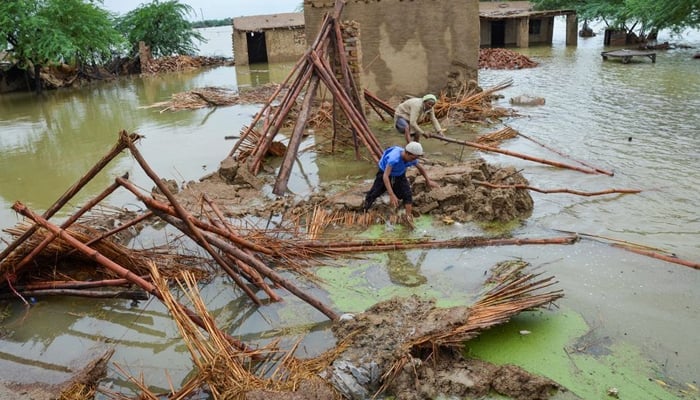ADB okays $500m loan to boost Pakistan's climate, disaster resilience
Policy-based loan to support Islamabad to scale up disaster risk financing using risk-layered approach, says ADB
Under the Climate and Disaster Resilience Enhancement Programme (CDREP), the Asian Development Bank (ADB) approved a $500 million policy-based loan to support climate change and disaster risk reduction and resilience in Pakistan.
The CDREP will strengthen Pakistan’s institutional capacity for planning, preparedness, and response; increase inclusive investment in disaster risk reduction and climate resilience; and support the scale-up of disaster risk financing using a risk-layered approach, read a press release issued by the ADB on Tuesday.
Pakistan is one of the most vulnerable countries to climate change and disasters triggered by natural hazards in Asia and the Pacific.
Average losses from disaster events exceed $2 billion per year.
Women and other vulnerable groups are disproportionately affected by climate change and disaster events.
"This programme builds on the ADB's longstanding work in Pakistan to understand and reduce climate and disaster risks and support effective disaster response," ADB Director General for Central and West Asia Yevgeniy Zhukov said.
"We are proud to support an integrated and comprehensive approach to climate and disaster risk management, including a portfolio of disaster risk financing instruments for timely and adequate funding for disaster response," Zhukov added.
The CDREP supports enhanced capacity for disaster risk mapping and modelling for investment and development decisions.
It enhances coordination for disaster monitoring and response.
It also supports enhanced planning and prioritisation of gender-sensitive and resilient public investments, including integrated flood risk management and nature-based solutions.
The programme supports mobilisation of climate finance from public and private sources.
This includes the issuance of a domestic green sukuk (Islamic bond).
A key innovation of the CDREP is the use of the ADB's Contingent Disaster Financing option for the first time in the Central and West Asia region.
This will provide quick disbursing budget support in the event of a disaster.
It will support establishing a solidarity fund to facilitate the uptake of risk transfer solutions such as agriculture insurance besides supporting shock-responsive social protection to deliver cash assistance in the event of a disaster.
The ADB has also approved a technical assistance grant of $1 million to support the implementation of the programme.
Pakistan was a founding member of the ADB.
Since 1966, the ADB has committed over $52 billion in public and private sector loans, grants, and other forms of financing to promote inclusive economic growth in Pakistan and improve the country’s infrastructure, energy and food security, transport networks, and social services.
-
Tesla expands Cybertruck lineup with affordable model in US, slashes Cyberbeast price to boost demand
-
Uber enters seven new European markets in major food-delivery expansion
-
Will Warner Bros finalize deal with Paramount or stays loyal with Netflix's offer?
-
$44 billion Bitcoin blunder: Bithumb exchange apologizes for accidental payout
-
Global memory chip crunch puts spotlight on Apple; Will iPhone become more pricey?
-
Bitcoin plummets toward $60,000 as investors dump risky bets
-
Bitcoin crashes below $63K as regulatory pressure and market fears grow
-
Bitwise Crypto Industry innovators ETF: What investors should do in 2026?












